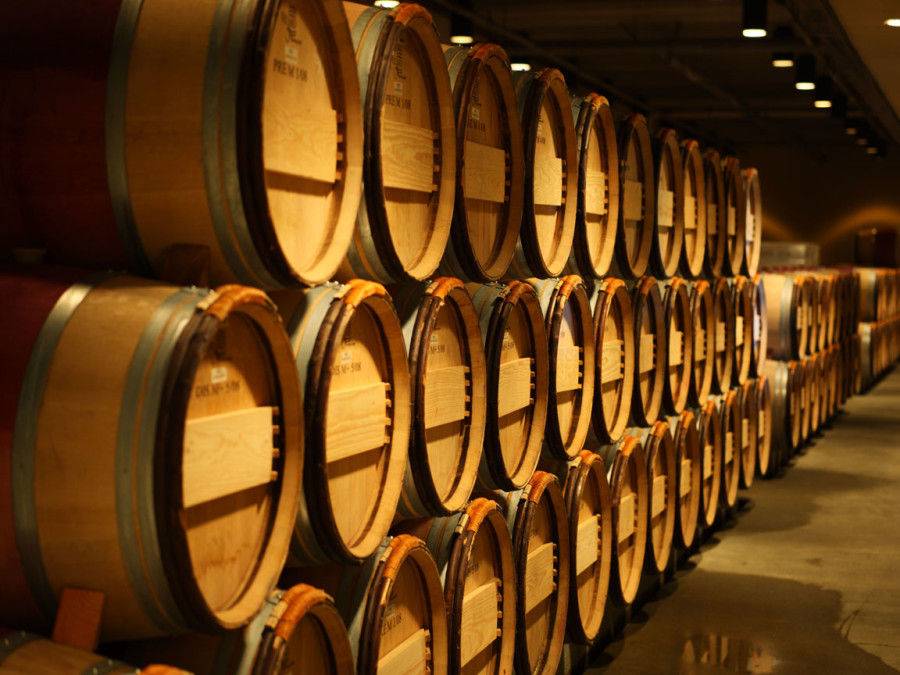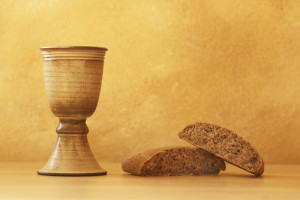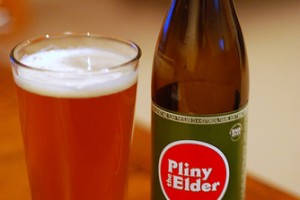Until I recently moved to Scotland, I spent most of my Christian life in American Evangelical churches. In these churches, they have unanimously done communion with grape juice, without the option to use wine if one so desired. As much as I regularly experienced this, I never really understood why churches decide to use grape juice instead of wine, apart (of course) from the fact that it would make those who have had addictions to alcohol stumble. Even still, the lack of the option for wine (in my experience–this is certainly not uniform!) is curious. Although this topic has surely been more thoroughly fleshed out elsewhere, I want to present a short case for using wine in communion.
The use of grape juice instead of wine may evidence that people think the significance of the communion drink can be reduced the color of the drink. Ιn this scheme, Jesus provides wine only because it bears aesthetic resemblance to the color of blood—no more, no less. Although I have heard some theological explanations about the significance of grape juice coming from grapes, I have most often heard that the only significance of the drink is that its red. Blood is red. Grape juice is red. So it’s fine.
But is it really all about the color? Is the significance purely in the aesthetic correspondence? I think there is much more going on here as to why Jesus institutes wine as the symbol of the new covenant. I think the use of wine has to do with the cosmic redemption of all creation. Grapes and the drink that flows from them were given as gifts to us. Unfortunately, this drink was abused even at the earliest points of human history (Genesis 9.18–23). The sin of drunkenness also infects even the leaders of Israel. Thus:
These also reel with wine and stagger with strong drink; the priest and the prophet reel with strong drink. (Isaiah 28:7)
Awake, you drunkards, and weep, and wail, all you drinkers of wine, because of the sweet wine, for it is cut off from your mouth. (Joel 1:5)
But then again, an abundance of wine is actually a symbol of God’s kingdom in the Old Testament. Here are a few examples from Isaiah:
On this mountain the LORD of hosts will make for all peoples a feast of rich food, a feast of well-aged wine, of rich food full of marrow, of aged wine well refined. And he will swallow up on this mountain the covering that is cast over all peoples, the veil that is spread over all nations. He will swallow up death forever . . . (Isaiah 25.6–8)
Come, everyone who thirsts, come to the waters; and he who has no money, come, buy and eat! Come, buy wine and milk without money and without price. (Isaiah 55.1)
And here are a few from the minor prophets:
And Jerusalem shall be holy, and strangers shall never again pass through it. And in that day the mountains shall drip sweet wine, and the hills shall flow with milk, and all the streambeds of Judah shall flow with water . . . (Joel 3.17–18)
Behold, the days are coming . . . when the plowman shall overtake the reaper and the treader of grapes him who sows the seed; the mountains shall drip sweet wine, and all the hills shall flow with it. I will restore the fortunes of my people Israel, and they shall rebuild the ruined cities and inhabit them; they shall plant vineyards and drink their wine, and they shall make gardens and eat their fruit. (Amos 9.13–14)
I think there is a certain logic to the presence of both negative and positive descriptions of wine in scripture. When Israel abuses alcohol, God’s response is not to ban the drink entirely, or to eradicate it from the earth or whatever, but rather to restore it, to give it once again to his people to use properly, in order that the people may rejoice when God redeems them from their plight and recapitulates the world in his justice. So in the eschaton “the mountains will drip sweet wine” and the final celebration will be done with wine. The reinstitution of wine is subsumed under a larger category: this is the redemption of all things, putting everything (even drinks!) in their proper place and setting.
Apart from wine being used as a symbol for God’s restoration of the cosmos, I think in particular the alcoholic content of wine is intentionally significant for at least two reasons. First, the promise of the new covenant explicitly is rest (Jeremiah 31.2–3, 31). And as we saw above the celebratory drink of this rest is wine. Maybe this will sound crazy to you, but: I think that the relaxing effects of alcohol in wine actually bear the theological significance of the new covenant promise of rest. The physiological effects that normal doses of alcohol have your body is intentional: by causing a certain relaxation, they physically represent the rest of the new covenant.
Second, a quote from a former Two Cities post:
Perhaps it’s the boy kneeling next to you, who takes a big gulp of wine, swallows, and then grabs his throat in pain. Maybe you lean over and whisper, “Are you okay?” and he whispers back, “That drink always hurts the inside of my neck!” And suddenly you remember the first time you ever took the Eucharist with real wine, on your knees, in a stone church on a cold, grey morning, and the wine stung your mouth, burned down your throat, warmed your body–and made you think of blood: hot and red and alive.
“Oh Death, where is your sting?!” cries the prophet! The ascetic taste, the sting of the alcohol in wine impresses upon its consumers a special meaning when used in the context of communion. Jesus experienced the final sting of death through his blood, and we, embracing his death, will never feel the final sting of death. Instead, those who die with Christ will find eschatological rest after they are resurrected unto life. The alcoholic content of wine initially stings our tongues, burns on the way down, and leads to a physical experience of relaxation. This is a sign of rest. This is the drink of the new covenant. This is the blood of Jesus.





2 Comments
Leave your reply.